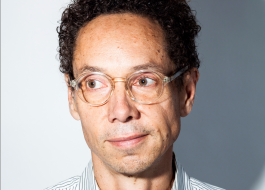Malcolm Gladwell is taking aim at Stanford University's request for charitable donations.
In a series of tweets on Tuesday, he lambasted the elite school, linking to a request from Stanford for gifts to help support student financial aid.
"Stanford has $22.4 billion in the bank, tax free," he tweeted. "You might as well send your check to the Sultan of Brunei."
FYI: Stanford has $22.4 billion in the bank, tax free. You might as well send your check to the Sultan of Brunei https://t.co/P6cCO5EnFB
— Malcolm Gladwell (@Gladwell) February 21, 2017Btw. If Stanford, with $22 billion in the bank, still has needy undergraduates, how are they spending the billions they ALREADY have? https://t.co/P6cCO5EnFB
— Malcolm Gladwell (@Gladwell) February 21, 2017Money can't buy you love. But it can buy your kid into Stanford. https://t.co/P6cCO5EnFB
Did I mention Stanford doesn't pay any taxes on its 22bil? Why should I send them money if I'm already subsidizing them? https://t.co/P6cCO5VYx9
— Malcolm Gladwell (@Gladwell) February 21, 2017Never one to mince words, the famed author has frequently excoriated charitable giving to wealthy universities.
In 2015, after the Wall Street billionaire John Paulson donated $400 million to Harvard, Gladwell similarly pounced on the news, insinuating that Paulson's money could have been put to better use. The gift from Paulson was Harvard's largest-ever gift and added to the university's mammoth $36.4 billion endowment.
"If billionaires don't step up, Harvard will soon be down to its last $30 billion," Gladwell wrote at the time.
In Gladwell's criticism on Tuesday, he pointed out that as a nonprofit institution, Stanford doesn't pay taxes on its multibillion-dollar endowment.
"Why should I send them money if I'm already subsidizing them?" he wrote.
Critics of colleges receiving money tax-free say that exemptions provided to private colleges can be thought of as American taxpayers subsidizing private-endowment funds. Basically, they say, an exemption in one area increases taxes in another area, ultimately falling on the backs of American taxpayers.




